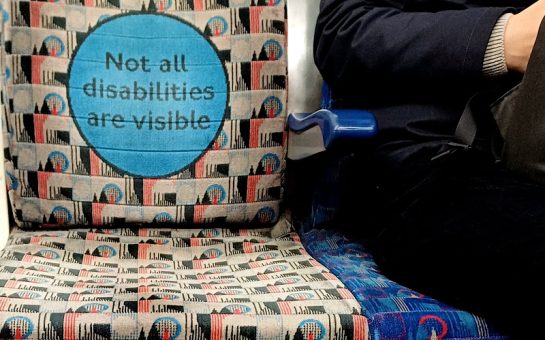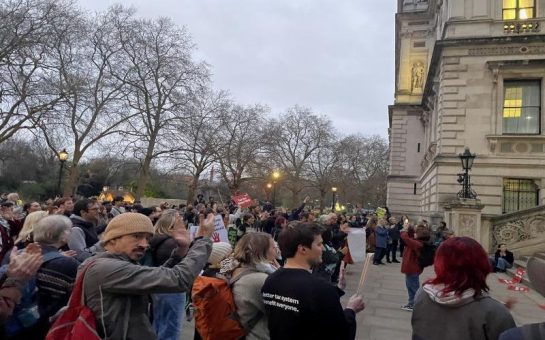Meet the savvy Londoners occupying empty buildings to stave off squatters.

For many graduates and young professionals, London is the only place to be for the best opportunities and most competitive salaries.
But with the dense population of people trying to ‘make it’ in the capital comes rocketing rent prices and a lack of affordable housing.
The average cost of renting a home in Greater London is now 87.8% more expensive than the rest of the UK, according to latest figures from the HomeLet Rental Index, yet this does not seem to stop the influx of young people to the big city.
Laura Thurow, 24, who has recently begun a graduate scheme and commutes to London Bridge from Bedfordshire, believes young people in her position have to compromise when it comes to London living, even if they have a well-paying job.
She explained: “If you want to be close to your work you have to pay for it. It now takes more than an hour for me door-to-door, so I can only justify renting in London if my commute is less than half an hour.
“But affording to live centrally by yourself is usually out of the question, especially with council tax and bills on top.”
For some, like Laura, there is a choice between living far from work and paying extra for travel, or renting a place where the rate does not necessarily reflect the quality.
But somewhere just under the radar lies one of London’s little-known property secrets.
It has been all the rage in the Netherlands for the best part of two decades but despite similar companies being around for almost six years in the UK, the cat is still not quite out of the bag.
Meet the Property Guardians: a savvy class of Londoners who occupy empty buildings for a fraction of the cost of standard city centre rent, while staving off potential squatters as a service to the property owner.
Guardians live under property schemes to fill converted vacant buildings such as care homes, accommodation blocks and even churches, so that they do not become squatting sites, a concern which was further protected by the change in law in September which ruled squatting a criminal offence.
Zoë Oakes, marketing manager for one such property protection company, Ad Hoc, said: “Having our Guardians visibly living in buildings wards off threats such as squatting, as well as theft of copper and lead and vandalism. The property is occupied, therefore protected.
“Our main benefit for potential guardians is that we provide affordable accommodation – of which there is a shortage in London.”
Property protection and guardianship schemes can provide housing for someone in as little as a day, depending on the location. For example, Hackney currently has a waiting list with Ad Hoc, but certain buildings may become available in a different borough that can be filled immediately.
With monthly fees between £250-350, the cost of living under these schemes is just a quarter of the average price to rent a home in the capital: an eye-watering £1,273 a month.
But as with every option for young Londoners, it seems, there are potential downsides to what may first appear to be an ideal living solution in the city.
Guardians are not subject to a generic tenancy contract but a ‘licensing agreement’, which guarantees only 14 days’ notice before eviction, as opposed to the conventional four weeks.
Although many guardianship companies including Ad Hoc will also aim to re-house you within the scheme, the question is really whether this potentially risky form of lifestyle is suited to your needs.
Current guardian Adam, 24, said: “Having done this for a while now I’ve seen both sides of the coin when it comes to being a house guardian. Doing this meant I could not only move house, but city, in what I’m convinced was probably the cheapest possible way.
“But the obvious cons of the whole process are a lack of overall rights. There lies the biggest problem – you can be removed at any time and with only two weeks’ notice. This is a constant worry, but it is something I have come to terms with.”
Many guardians, like Adam, use the scheme to save money before renting or even buying another property, and often are key workers such as nurses or teachers who benefit from the lower cost of living.
But as Ad Hoc’s spokesperson explains, the scheme may not be for everybody: “You obviously need to be flexible and up for an alternative way of living.
“But if you are looking to save a lot of money then this would certainly be an option, and with it comes an exceptional opportunity to live very cheaply in great locations.”
Potential guardians are subject to an interview and induction before moving into a vacant property, and must provide proof of employment and current address, as well as references and three recent bank statements.
Laura is still considering her options in terms of moving closer to her London job, but said: “People my age don’t want to pay a stupid amount just to have somewhere nice to live but on the other hand, we want to live like young professionals, so this idea seems to make a lot of sense.”
With hundreds of properties and thousands of guardians being added to their books, the statistics for many property guardianship companies are fluid but, due to rising awareness of the scheme in this country, numbers are growing.
Adam, who has had his flat in a former East London office block for almost a year under the scheme, says it can be a bit of a lottery, and he was one of the more fortunate ones.
He added: “I guess I’ve lucked out, I’ve got friends who have had much shorter stays. For me, the money I’ve saved alone makes the experience worth it.
“At this point I’d completely recommend it to others – but as a temporary situation. Do it to get your feet on the ground and then move on.”
It is certainly not the most conventional way of living, but for current commuters and ripped-off renters, being a property guardian could be one way to establish your life in London, without the capital price-tag.
Follow us on @SW_Londoner




